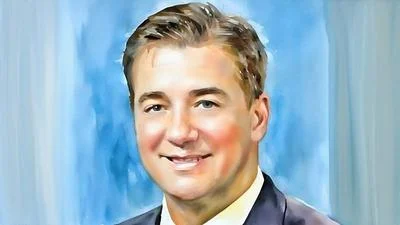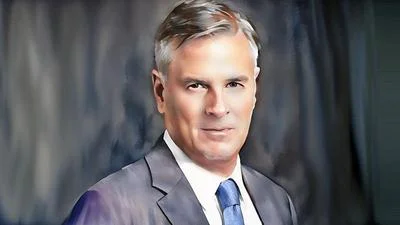Timothy Massad, a seasoned financial regulator and expert on digital assets, is a research fellow at Harvard's Kennedy School of Government. He previously served as Chairman of the U.S. Commodity Futures Trading Commission (CFTC) and worked on the Troubled Asset Relief Program (TARP). He met with Federal Newswire to discuss controversies around cryptocurrency, including how policy makers should think about regulations for the industry.
According to Massad, the first step is to distinguish between the technology behind cryptocurrencies and their use as assets. "I think it's good to recognize that this is really more of a technology than an asset class," he says. The digital assets can represent various interests—some resemble securities, others function as commodities, and stablecoins act as payment mechanisms.
Massad first encountered the growing crypto sector in 2014, when he was at the CFTC. The agency had to decide how to classify Bitcoin and other digital assets. "The definition of a commodity includes lots of things you would think of as commodities, like cotton and oil,” he says. “But, basically anything else can be a commodity if it's used in a futures contract...or a derivatives contract," he explains.
The CFTC allowed Bitcoin swaps, but also took enforcement actions against what it deemed were fraudulent activities. Massad believes that enforcement actions in the crypto space have been necessary to combat fraud and manipulation. "We saw people as early as 2014 engaging in activities that we thought were fraudulent," he says. These included promoting crypto tokens in deceptive ways or offering Bitcoin derivatives without required approvals. The CFTC took action, and courts upheld their decisions.
The challenge, he adds, is balancing enforcement with the need to encourage innovation. "We’re not ever going to have a risk-free system, and we should not be trying to achieve that," Massad says. Instead, he advocates for evaluating each case based on its specific facts and circumstances to strike the right balance between mitigating risks and fostering technological advancement.
A key complexity of blockchain technology, according to Massad, is its dual nature, where transactions are both transparent and anonymous. Massad explains, "Any blockchain is in one sense transparent,” he says. “It's a permanent record–you can go to it and see all transactions, but you're looking at addresses that are not like our email addresses. Because the transactions appear as a string of letters and numbers, “we don't necessarily know who that address really belongs to," he explains.
This makes it harder to prevent illicit activity. While law enforcement can sometimes identify individuals behind blockchain addresses, Massad warns that bad actors can exploit the system. Stablecoins have been used to fund terrorism, according to Massad, and he points to Hamas and Russian arms smugglers as examples.
"The concern today is that you can transfer crypto assets on a blockchain in such a way that you cannot necessarily identify who [it was]," he says.
Cryptocurrency poses opportunities as well as risks for national security. Massad explains that the traditional financial system relies on U.S. banks as gatekeepers due to the preeminence of the dollar. "Most international financial transactions, even those conducted in some other currency, often connect with U.S. banks," he says. This system gives the U.S. significant leverage in imposing sanctions.
However, crypto can bypass this traditional financial plumbing, potentially undermining U.S. sanctions. "With crypto, you can potentially get around that financial plumbing and move value without going through a bank," Massad warns.
Despite the risk, blockchain’s transparency offers some advantages for law enforcement. "We can do risk analysis of those wallets...and maybe pinpoint bad actors, or at least have a pretty good suspicion as to who a bad actor is," he explains. He also highlights the potential to ring-fence certain addresses or even seize tokens from bad actors.
Massad believes that the U.S. needs a clear regulatory framework for crypto to thrive while minimizing risks. He envisions a system that includes digital identity verification to prevent anonymous transactions. "Think of it like a TSA PreCheck. You’ve been vetted...then you can ping that credential when you're going to do a crypto transaction, and unless you were to provide that credential, the transaction doesn't go through," he suggests.
Massad sees a role for Congress and regulatory agencies like the CFTC and SEC. He predicts that regulators will take action before Congress does, noting that the SEC may modify its policies to make compliance easier for crypto firms.
He also stresses the importance of cooperation between the CFTC, SEC, and Treasury. He points to his experience implementing Dodd-Frank regulations as an example of successful inter-agency collaboration. "I think coordination is always very helpful here," he says.
A critical issue in crypto regulation is whether digital assets should be classified as commodities or securities. Massad explains the traditional "Howey Test," a Supreme Court case that defines what constitutes a security. The SEC has argued that many crypto tokens meet this definition because they represent investments in a business enterprise.
Massad, however, believes the debate over classification has slowed progress. "It's unfortunate, because I think what we need to do is create a reasonable framework for regulating the trading of these things and providing for some disclosure, regardless of what they are," he says. He emphasizes the need to preserve the robust securities framework that has served financial markets well for decades.
But he warns that the lack of a clear regulatory framework increases the risk of a significant crypto-related crisis. "That's always possible because there isn't a clear and adequate regulatory framework in my mind," he says. He advocates for policies that encourage useful innovation rather than speculative activity.
"The question is really whether...we are going to encourage development of this technology in a way that leads to useful innovation and real use cases," Massad explains. He urges policymakers to focus on creating a framework that supports long-term growth and stability in the crypto sector.








